CVD
How to submit an article:
- Registered users can submit any published journal article that has a unique DOI (Digital Object Identifier) name or link to Research Hub.
- For example, you can paste the full DOI link:
https://doi.org/10.1109/5.771073or just the DOI name:10.1109/5.771073into the field above and click submit. - The person who is first to submit a valid article to Research Hub will forever be credited for it, and every article submission earns you +6 Research Points.
Related Topics
Published research studies are articles that present the findings of original research that has undergone a peer-review process and has been made publicly available in scholarly journals, books or other media.

Peanut (Arachis hypogaea L.) seeds and by-products in metabolic syndrome and cardiovascular disorders: A systematic review of clinical studies
2024 Jan Phytomedicine Nunes YC, Santos GO, Machado NM, Otoboni AMMB, Laurindo LF, Bishayee A, et al.
Peanuts and their products, containing phytochemicals, can improve metabolic parameters and have the potential to be used as a sustainable and low-cost alternative for the prevention and treatment of MetS and CVD.
Systematic Review Review Article Peanut
Material basis and integrative pharmacology of danshen decoction in the treatment of cardiovascular diseases
2023 Jan Phytomedicine Liu M, Li Z, Ouyang Y, Chen M, Guo X, Mazhar M, et al.
Danshen Decoction (DSD) plays a role in the treatment of cardiovascular diseases (CVDs) through a variety of active ingredients.
Network Pharmacology Dan Shen Decoction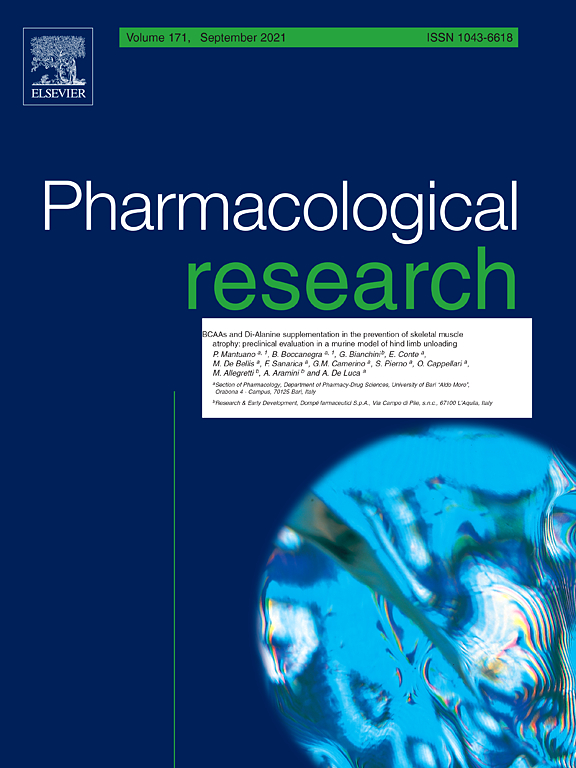
Coffee or tea: Anti-inflammatory properties in the context of atherosclerotic cardiovascular disease prevention
2023 Jan Pharmacological Research Surma S, Sahebkar A, Banach M
Review Article Meta-Analysis Cardiovascular Disease Coffee Anti-Inflammatory TeaConsumption of tea and coffee may possibly provide anti-inflammatory effects, contributing to reduced cardiovascular risk and mortality.
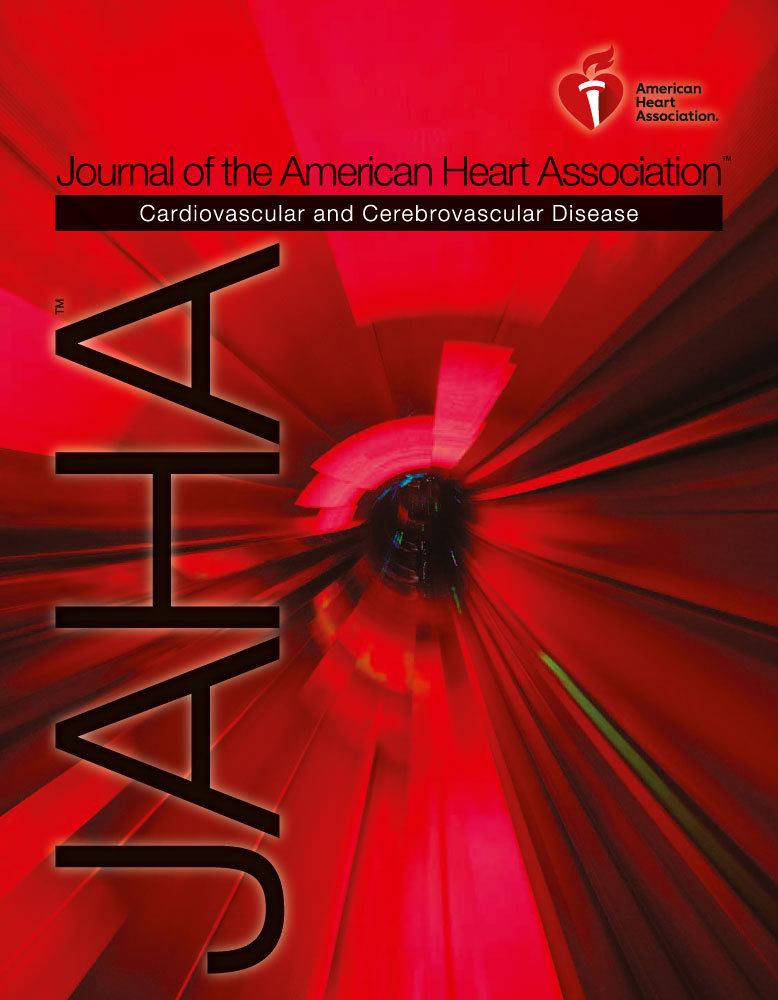
Coffee and Green Tea Consumption and Cardiovascular Disease Mortality Among People With and Without Hypertension
2023 Jan 17 Journal of the American Heart Association Teramoto M, Yamagishi K, Muraki I, Tamakoshi A, Iso H
Cohort Study High Blood Pressure Green Tea CoffeeHeavy coffee consumption increases the risk of cardiovascular disease mortality in individuals with severe hypertension, while green tea consumption does not.
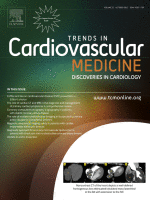
Coffee and tea on cardiovascular disease (CVD) prevention
2022 Oct Trends in Cardiovascular Medicine Chieng D, Kistler PM
Review Article Green Tea Cardiovascular Disease CoffeeConsuming 2-3 cups of coffee daily can help prevent cardiovascular disease and drinking at least 3 cups of green tea has similar benefits.
Research insights are moderated by the Research Hub team and offer an at-a-glance overview of interesting research findings.

2023 Journal of the American Heart Association
Heavy coffee consumption increases the risk of cardiovascular disease mortality in individuals with severe hypertension, while green tea consumption does not.
Cohort Study Coffee Green Tea High Blood Pressure
Coffee and Green Tea Consumption and Cardiovascular Disease Mortality Among People With and Without Hypertension
Teramoto M, Yamagishi K, Muraki I, Tamakoshi A, Iso H

2023 Pharmacological Research
Consumption of tea and coffee may possibly provide anti-inflammatory effects, contributing to reduced cardiovascular risk and mortality.
Review Article Anti-Inflammatory Cardiovascular Disease Coffee Tea
Coffee or tea: Anti-inflammatory properties in the context of atherosclerotic cardiovascular disease prevention
Surma S, Sahebkar A, Banach M

2022 Trends in Cardiovascular Medicine
Consuming 2-3 cups of coffee daily can help prevent cardiovascular disease and drinking at least 3 cups of green tea has similar benefits.
Review Article Cardiovascular Disease Coffee Green Tea
Coffee and tea on cardiovascular disease (CVD) prevention
Chieng D, Kistler PM
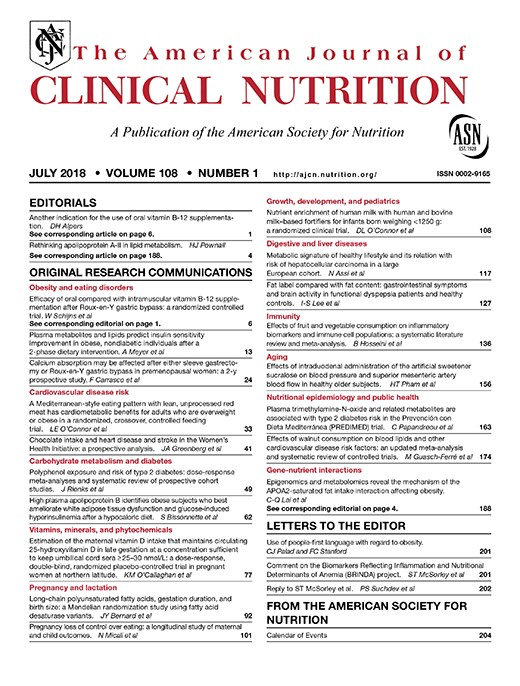
2022 The American Journal of Clinical Nutrition
Cocoa extract supplementation in older adults reduced cardiovascular disease related death rates, but did not significantly lessen total cardiovascular events.
Randomised Controlled Trial Cardiovascular Disease Cocoa
Effect of cocoa flavanol supplementation for the prevention of cardiovascular disease events: the COcoa Supplement and Multivitamin Outcomes Study (COSMOS) randomized clinical trial
Sesso HD, Manson JAE, Aragaki AK, Rist PM, Johnson LG, Friedenberg G, et al.

2022 Journal of the American Heart Association
Eating more avocados, specifically two servings a week, is associated with a significantly lesser risk of cardiovascular disease and coronary heart disease.
Cohort Study Avocado Cardiovascular Disease Heart Disease
Avocado Consumption and Risk of Cardiovascular Disease in US Adults
Pacheco LS, Li Y, Rimm EB, Manson JAE, Sun Q, Rexrode K, et al.
Review Articles
Review articles summarise and critically evaluate the current state of research on a specific topic or field by synthesising multiple primary research studies.

Peanut (Arachis hypogaea L.) seeds and by-products in metabolic syndrome and cardiovascular disorders: A systematic review of clinical studies
2024 Jan Phytomedicine Nunes YC, Santos GO, Machado NM, Otoboni AMMB, Laurindo LF, Bishayee A, et al.
Peanuts and their products, containing phytochemicals, can improve metabolic parameters and have the potential to be used as a sustainable and low-cost alternative for the prevention and treatment of MetS and CVD.
Systematic Review Review Article Peanut
Coffee or tea: Anti-inflammatory properties in the context of atherosclerotic cardiovascular disease prevention
2023 Jan Pharmacological Research Surma S, Sahebkar A, Banach M
Review Article Meta-Analysis Cardiovascular Disease Coffee Anti-Inflammatory TeaConsumption of tea and coffee may possibly provide anti-inflammatory effects, contributing to reduced cardiovascular risk and mortality.

Coffee and tea on cardiovascular disease (CVD) prevention
2022 Oct Trends in Cardiovascular Medicine Chieng D, Kistler PM
Review Article Green Tea Cardiovascular Disease CoffeeConsuming 2-3 cups of coffee daily can help prevent cardiovascular disease and drinking at least 3 cups of green tea has similar benefits.
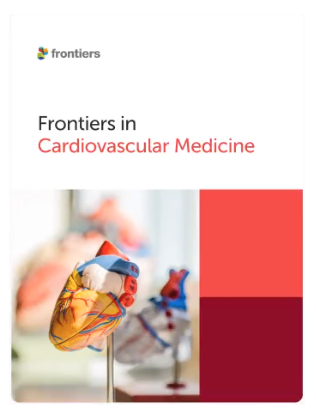
Effects and safety of Chinese herbal medicine on inflammatory biomarkers in cardiovascular diseases: A systematic review and meta-analysis of randomized controlled trials
2022 Aug 16 Frontiers in Cardiovascular Medicine Li M, Zhou IW, Trevillyan J, Hearps AC, Zhang AL, Jaworowski A
Systematic Review Meta-Analysis Cardiovascular Disease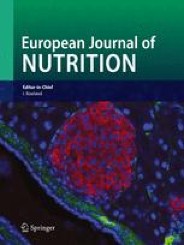
Effect of oat supplementation interventions on cardiovascular disease risk markers: a systematic review and meta-analysis of randomized controlled trials
2022 Jan 03 European Journal of Nutrition Llanaj E, Dejanovic GM, Valido E, Bano A, Gamba M, Kastrati L, et al.
Meta-Analysis Systematic Review Cholesterol Oats Cardiovascular DiseaseOat supplementation interventions can improve cardiovascular health markers among adults, regardless of their diet or metabolic conditions.
Clinical Trials
Clinical trials are research studies that involve people and are conducted to evaluate the safety and efficacy of new treatments or interventions, such as drugs, medical devices, or behavioural therapies.

Effect of cocoa flavanol supplementation for the prevention of cardiovascular disease events: the COcoa Supplement and Multivitamin Outcomes Study (COSMOS) randomized clinical trial
2022 Jun The American Journal of Clinical Nutrition Sesso HD, Manson JAE, Aragaki AK, Rist PM, Johnson LG, Friedenberg G, et al.
Randomised Controlled Trial Cardiovascular Disease CocoaCocoa extract supplementation in older adults reduced cardiovascular disease related death rates, but did not significantly lessen total cardiovascular events.
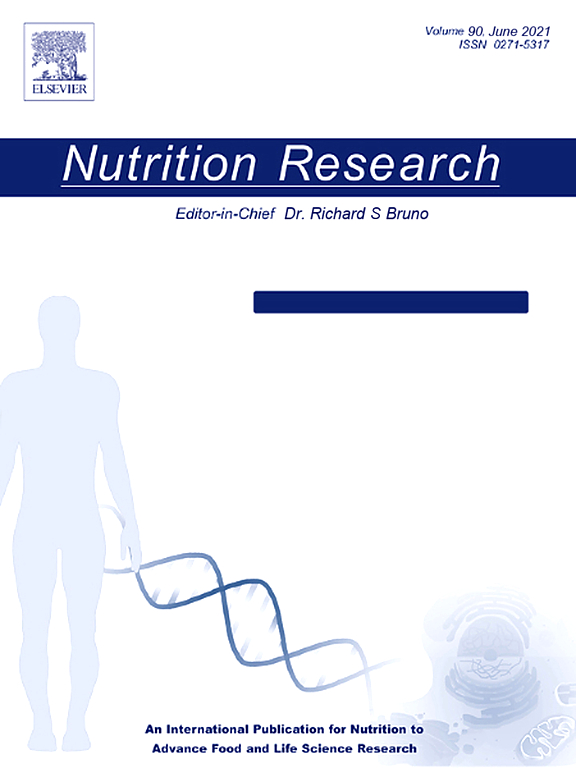
Pecan-enriched diets decrease postprandial lipid peroxidation and increase total antioxidant capacity in adults at-risk for cardiovascular disease
2021 Sep Nutrition Research Guarneiri LL, Paton CM, Cooper JA
Daily pecan consumption, either as part of the diet or as a substitution for isocaloric foods, resulted in suppressed postprandial lipid peroxidation and elevated postprandial TAC. Fasting γ-tocopherol levels also increased in both pecan groups. These findings suggest that regular pecan consumption has a protective effect against oxidative stress following a high-fat meal in adults at risk for CVD.
Clinical Study Randomised Controlled Trial Cardiovascular Disease Oxidative Stress
The effect of concentrated pomegranate juice consumption on risk factors of cardiovascular diseases in women with polycystic ovary syndrome: A randomized controlled trial
2020 Aug 07 Phytotherapy Research Abedini M, Ghasemi‐Tehrani H, Tarrahi MJ, Amani R
Randomised Controlled Trial Cardiovascular Disease Pomegranate PCOSConcentrated pomegranate juice consumption can potentially lower cardiovascular disease risk factors in women with polycystic ovary syndrome.
Study Protocols
Published study protocols are detailed plans that outline the objectives, methodology, statistical analyses, and organisation of a research study that have been made publicly available for others to review and use as a reference.
Presentation Slides

Cohort Study
Heavy coffee consumption increases the risk of cardiovascular disease mortality in individuals with severe hypertension, while green tea consumption does not.
Teramoto M, Yamagishi K, Muraki I, Tamakoshi A, Iso H

Review Article
Consumption of tea and coffee may possibly provide anti-inflammatory effects, contributing to reduced cardiovascular risk and mortality.
Surma S, Sahebkar A, Banach M

Review Article
Consuming 2-3 cups of coffee daily can help prevent cardiovascular disease and drinking at least 3 cups of green tea has similar benefits.
Chieng D, Kistler PM

Randomised Controlled Trial
Cocoa extract supplementation in older adults reduced cardiovascular disease related death rates, but did not significantly lessen total cardiovascular events.
Sesso HD, Manson JAE, Aragaki AK, Rist PM, Johnson LG, Friedenberg G, Copeland T, Clar A, Mora S, Moorthy MV, Sarkissian A, Carrick WR, Anderson GL

Cohort Study
Eating more avocados, specifically two servings a week, is associated with a significantly lesser risk of cardiovascular disease and coronary heart disease.
Pacheco LS, Li Y, Rimm EB, Manson JAE, Sun Q, Rexrode K, Hu FB, Guasch‐Ferré M

Meta-Analysis
Oat supplementation interventions can improve cardiovascular health markers among adults, regardless of their diet or metabolic conditions.
Llanaj E, Dejanovic GM, Valido E, Bano A, Gamba M, Kastrati L, Minder B, Stojic S, Voortman T, Marques-Vidal P, Stoyanov J, Metzger B, Glisic M, Kern H, Muka T
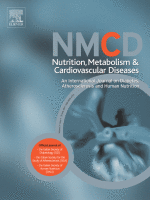
Systematic Review
Drinking coffee may be linked to lower mortality risk in type 2 diabetes patients.
Shahinfar H, Jayedi A, Khan TA, Shab-Bidar S
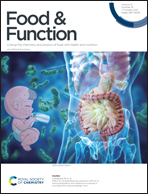
Systematic Review
Almond intake significantly changed the concentrations of triglycerides, total cholesterol and low-density lipoproteins
Asbaghi O, Moodi V, Hadi A, Eslampour E, Shirinbakhshmasoleh M, Ghaedi E, Miraghajani M

Review Article
Tian Ma, a traditional Chinese medicine, shows promise as a complementary therapy for aging-related diseases, including Alzheimer's and cerebrocardiovascular diseases.
Heese K
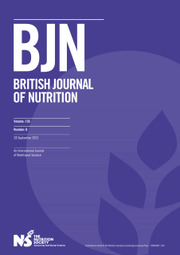
Systematic Review
Consuming walnuts does not significantly alter blood glucose levels, indicating cardiovascular protective effects of walnuts are not due to improved glycaemic control.
Neale, E., Guan, V., Tapsell, L., & Probst, Y.

Meta-Analysis
Supplementation with blueberry shows a potential for beneficial impact on reducing body weight, which might indirectly influence cardiovascular disease risk factors.
Miraghajani M, Momenyan S, Arab A, Hasanpour Dehkordi A, Symonds ME

Randomised Controlled Trial
Concentrated pomegranate juice consumption can potentially lower cardiovascular disease risk factors in women with polycystic ovary syndrome.
Abedini M, Ghasemi‐Tehrani H, Tarrahi MJ, Amani R

Meta-Analysis
Chronic consumption of cranberry or cherry juice might considerably improve blood pressure levels.
Wang Y, Gallegos JL, Haskell-Ramsay C, Lodge JK

Systematic Review
Cocoa consumption has strong beneficial impacts on cardiovascular health, reducing blood pressure, improving vascular function, and modulating lipid and glucose metabolism.
Ludovici V, Barthelmes J, Nägele MP, Enseleit F, Ferri C, Flammer AJ, Ruschitzka F, Sudano I

Systematic Review
Regular chocolate or cocoa consumption, rich in flavan-3-ols, has been associated with improved insulin resistance and blood vessel function, suggesting potential cardiovascular benefits.
Hooper L, Kay C, Abdelhamid A, Kroon PA, Cohn JS, Rimm EB, Cassidy A
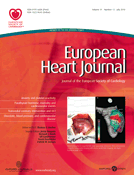
Cohort Study
Chocolate consumption appears to lower cardiovascular disease risk, in part through reducing blood pressure.
Buijsse B, Weikert C, Drogan D, Bergmann M, Boeing H
Executive Summary
Write an executive summary in the form of a blog article on the topic of "Research into Chinese medicine treatment for CVD" summarising the research below and using language that can be easily understood by patients and avoiding medical jargon using a professional and caring tone of voice.
Write an executive summary in the form of a blog article on the topic of "Researched Chinese medicine treatments for CVD" summarising the research below in an objective and easy to understand way, and using language that can be easily understood by patients. Group the article into Chinese medicine treatments first, followed by nutrition and other treatments. Avoid using medical jargon and use a professional and caring tone of voice.
Write me a concise but easy to understand executive summary on the topic of "Chinese medicine treatments for CVD" based on the following research that I will give you. Your summary should be 2 paragraphs long in Australian English spelling and include references to the studies.
A Cohort Study published in 2023 in the journal Journal of the American Heart Association found that Heavy coffee consumption increases the risk of cardiovascular disease mortality in individuals with severe hypertension, while green tea consumption does not. With the use of the Japan Collaborative Cohort Study, researchers assessed 18,609 participants, both male and female, aged between 40 to 79 years. These participants had varying blood pressure levels, categorized into optimal and normal BP, high-normal BP, and two stages of hypertension. They completed a questionnaire about their lifestyle, diet, and medical history, and underwent health examinations, which were followed up until 2009. The association of coffee and green tea consumption on cardiovascular disease mortality was then calculated using a Cox proportional hazard model. It was found over an 18.9 year follow-up period that heavy coffee consumption was linked to increased risk of cardiovascular disease mortality among those suffering from the second to third grade of hypertension. In stark contrast, people with optimal and normal, high-normal blood pressure and first grade hypertension did not show such associations between coffee consumption and cardiovascular disease mortality. Interestingly, the risk of cardiovascular disease mortality was not found to be increased across any blood pressure categories in relation to green tea consumption.
A Review Article published in 2023 in the journal Pharmacological Research found that Consumption of tea and coffee may possibly provide anti-inflammatory effects, contributing to reduced cardiovascular risk and mortality. The methodology of this narrative review examined the potential anti-inflammatory properties of consuming tea and coffee as a factor in reducing the risk of cardiovascular disease. This was done by analyzing a plethora of studies and meta-analyses that explored the impact of diet on inflammation, with a keen focus on the consumption of these beverages. The studies looked at a variety of risk factors for atherosclerotic cardiovascular disease, including inflammation biomarkers such as C-reactive protein, along with the impact of modern lipid-lowering treatments. In discussing the results, it was noticed that inconsistent findings were produced from the analysed studies which made a conclusive determination challenging. However, a trend was observed where drinking tea and coffee seemed to raise adiponectin levels, reduce reactive oxygen species and lower low-density lipoprotein cholesterol levels. Despite these potential anti-inflammatory properties of tea and coffee being somewhat uncertain due to various confounding factors, their consumption is still recommended as part of a healthy diet.
A Review Article published in 2022 in the journal Trends in Cardiovascular Medicine found that Consuming 2-3 cups of coffee daily can help prevent cardiovascular disease and drinking at least 3 cups of green tea has similar benefits. In this review, researchers examined the effects of habitual coffee and tea consumption on cardiovascular disease (CVD) prevention. Specifically, they studied the association between 2-3 cups of coffee or tea consumed daily and their beneficial effects on metabolic syndrome, including hypertension and diabetes mellitus, focusing on how these popularly consumed beverages might affect lipid levels. The analysis of findings drew a correlation between moderate coffee intake and a reduced risk of several cardiovascular conditions, such as coronary heart disease, heart failure, arrhythmia, stroke, and CVD, in addition to lowering mortality from all causes. It was also noted that the benefits extended to higher tea consumption as well, particularly in the case of green tea, where it led to improved survival rates in population-based studies.
A Randomised Controlled Trial published in 2022 in the journal The American Journal of Clinical Nutrition found that Cocoa extract supplementation in older adults reduced cardiovascular disease related death rates, but did not significantly lessen total cardiovascular events. A randomized, double-blind, placebo-controlled trial was conducted on 21,442 US adults aged 60 or over, all of who were free of major cardiovascular disease and recently diagnosed cancer. The participants were assigned to either a cocoa extract supplement, which included 500 mg flavanols per day, or a placebo. The intervention phase ran from June 2015 to December 2020. The primary outcome was focused on the number of total cardiovascular events, including myocardial infarction, stroke, and cardiovascular death among others. The results showed that during a median follow-up of 3.6 years, there were 410 participants taking cocoa extract and 456 under placebo who had confirmed total cardiovascular events. Secondary endpoints showed reduced death due to cardiovascular disease for the cocoa extract supplement users. However, there was no significant impact on the incidence of total cardiovascular events. Conversely, a lower risk of total cardiovascular events was supported when analyses were censored at nonadherence. Overall, no safety concerns were raised during the trial.
A Cohort Study published in 2022 in the journal Journal of the American Heart Association found that Eating more avocados, specifically two servings a week, is associated with a significantly lesser risk of cardiovascular disease and coronary heart disease. The research analysis included 68,786 women from the Nurses' Health Study and 41,701 men from the Health Professionals Follow-up Study, who were free of cancer, coronary heart disease, and stroke at the start. Their diet was assessed using validated food frequency questionnaires at the start and then every four years. The researchers used Cox proportional hazards regressions to estimate hazard ratios. Over three decades of follow-up, 14,274 new cases of cardiovascular disease were documented, including 9,185 coronary heart disease events and 5,290 strokes. After adjusting for lifestyle and other dietary factors, it was found that compared to non-consumers, those who had higher avocado intake exhibited a lower risk of cardiovascular disease and coronary heart disease. No significant associations for stroke were detected. Furthermore, it was noted that replacing half a serving per day of certain fatty foods with equivalent amounts of avocado was linked with lower risk of cardiovascular disease.
A Meta-Analysis published in 2022 in the journal European Journal of Nutrition found that Oat supplementation interventions can improve cardiovascular health markers among adults, regardless of their diet or metabolic conditions. The methodology involved analyzing various randomized clinical trials that tested how oats, or extracts rich in oat beta-glucan and avenanthramides affected markers of cardiovascular disease risk. The sample population was predominantly subjects with high cholesterol, obesity, and mild metabolic disturbances. Interventions were compared to control arms without oats. In the discussion on results, it was found that subjects receiving the oat supplementation had improved health metrics such as total cholesterol, LDL cholesterol, glucose levels, body mass index, weight, and waist circumference. However, when the oat supplementation was compared to heterogeneous interventions, like wheat, eggs, rice, etc., reductions in the levels of glycated haemoglobin, diastolic blood pressure, HDL cholesterol, and apolipoprotein B were also seen. Despite these promising results, there were some concerns around the bias risk associated with the majority of included randomized clinical trials.
A Systematic Review published in 2021 in the journal Nutrition, Metabolism and Cardiovascular Diseases found that Drinking coffee may be linked to lower mortality risk in type 2 diabetes patients. In this study, the researchers conducted an exhaustive literature search through PubMed, Scopus, and Web of Sciences up to November 2020. They were looking for prospective cohort studies that evaluated the link between coffee consumption and the risk of cardiovascular disease and mortality in patients with type 2 diabetes. Two reviewers took on the work of extracting relevant data and assessing the certainty of evidence using the GRADE approach. A random-effects model was deployed to estimate hazard ratios. Dose-response connections were modeled using a one-stage mixed-effects meta-analysis. The researchers included ten prospective cohort studies that totalled 82,270 cases. The results showed an interesting trend: compared to those who did not consume coffee, the hazard ratios were consistently lower for mortality outcomes and cardiovascular disease, especially where the consumption rate was four cups per day. Importantly, no such association was found for either cancer mortality or stroke. The evidence suggested a potential inverse monotonic association between coffee drinking and mortality across all causes and cardiovascular disease, alongside a linear association for coronary heart disease and total cardiovascular events. The degree of certainty in these results was moderate for all-cause mortality, but was low or very low for all other reported outcomes.
A Systematic Review published in 2021 in the journal Food & Function found that Almond intake significantly changed the concentrations of triglycerides, total cholesterol and low-density lipoproteins To estimate the overall effect of almond intake, we employed the random-effect model. In total, 27 studies with 36 effect sizes were included in our analysis (1154 cases and 904 control subjects). The meta-analysis revealed that almond intake significantly changed the concentrations of triglycerides, total cholesterol, and low-density lipoproteins; however it did not have a significant effect on high-density lipoprotein levels. Meta-regression analysis indicated a linear relationship between the dose of almond and change in TG. This meta-analysis concludes that almond intake can significantly reduce lipid parameters.
A Review Article published in 2020 in the journal Evidence-Based Complementary and Alternative Medicine found that Tian Ma, a traditional Chinese medicine, shows promise as a complementary therapy for aging-related diseases, including Alzheimer's and cerebrocardiovascular diseases. This study utilized previous research to methodically analyze the efficacy and safety of Tian Ma in treating aging-related diseases. Investigations spanned across various well-structured disease models, with particularly close attention paid to Alzheimer's Disease. The study trialed not just on its raw form, but also explored how it performs within different herbal preparations and as pure natural extracts. The study's findings indicate that Tian Ma might present a viable alternative treatment for aging-related cerebrocardiovascular diseases and dementia. Specifically, its promising attributes were most noticeable in the context of complementary therapy for Alzheimer's Disease. The potential effectiveness of Tian Ma seems to be maintained across the various preparations, whether in herbal mixtures or as a pure natural product. The study thus concludes on a hopeful note regarding the use of Tian Ma in combatting debilitating age-linked conditions.
A Systematic Review published in 2020 in the journal British Journal of Nutrition found that Consuming walnuts does not significantly alter blood glucose levels, indicating cardiovascular protective effects of walnuts are not due to improved glycaemic control. The study involved a systematic review and meta-analysis of previous randomized trials that investigated the effects of walnut consumption on glycaemic control markers such as fasting blood glucose, insulin, and glycated Hb. Studies were found through a comprehensive search of databases including Medline, PubMed, CINAHL, and Cochrane up to March 2nd, 2019. The included studies' risk of bias was assessed using the Cochrane Risk of Bias tool. In light of the results, although 16 studies were included in the review, it was found that walnut consumption did not significantly impact fasting blood glucose levels or other markers for glycaemic control. Recognizing that the studies included in the analysis were either deemed to have 'some concerns' or 'high risk' of bias, these results suggest that the beneficial effects of walnuts on cardiovascular health aren't caused by improvements in glycaemic control.
A Meta-Analysis published in 2020 in the journal Complementary Therapies in Medicine found that Supplementation with blueberry shows a potential for beneficial impact on reducing body weight, which might indirectly influence cardiovascular disease risk factors. The methodology involved searching various digital databases such as ISI Web of Science, Scopus, PubMed, and Cochrane Library in March 2020. The researchers looked for all randomized and controlled clinical trials that used blueberry supplements to modify cardiovascular disease risk factors. Inclusion criteria were not restricted by language. References lists from primary studies and review articles were also checked for any additional studies. The results showed that although blueberry supplementation had a small, insignificant effect in reducing plasma triglycerides, there were no differences found between blueberry and control groups for any other cardiovascular disease risk outcomes. However, subgroup analysis indicated a potential favorable impact of blueberry on reducing body weight. It was found that studies lasting longer than 6 weeks or those that used blueberry powder or freeze-dried blueberry were indicative of significant weight loss.
A Randomised Controlled Trial published in 2020 in the journal Phytotherapy Research found that Concentrated pomegranate juice consumption can potentially lower cardiovascular disease risk factors in women with polycystic ovary syndrome. The study used a randomized clinical approach, enrolling 44 women identified with polycystic ovary syndrome, aged 18 to 40 years and above a certain body weight index. These participants were randomly divided into two groups: one group was given concentrated pomegranate juice (CPJ), while the other served as a control. Both groups were monitored over a period of 8 weeks, with baseline measurements taken for anthropometric measures, blood pressure, and biochemical parameters set at the onset and then compared at the end of the trial. Upon completion, the group that consumed CPJ showed reductions in blood pressure and serum triglyceride levels — a known risk factor for cardiovascular diseases. There was also an increase in the amount of high density lipoprotein-cholesterol (good cholesterol) and a decrease in the triglyceride to high-density lipoprotein-cholesterol ratio. However, an increase was observed in levels of low-density lipoprotein-cholesterol (bad cholesterol). No adverse events or complications arose from CPJ consumption during the study period.
A Meta-Analysis published in 2020 in the journal European Journal of Nutrition found that Chronic consumption of cranberry or cherry juice might considerably improve blood pressure levels. The review involved a comprehensive search across several databases including PubMed, Web of Science, Scopus, and psycARTICLES from the beginning until January 2020. The search results included forty-five randomized controlled trials that lasted at least a week, assessing the effects of berries, citrus, and cherries on different cardiovascular disease risk indicators. These indicators were endothelial function, blood pressure, lipid status, and inflammatory biomarkers. Different preparations of berries including juice of barberry, cranberry, grape, pomegranate, blueberry powder, grape, raspberry and freeze-dried strawberry were studied. The resulting reports showed improvements in endothelial function, inflammation markers, lipid status, and blood pressure. Among the interventions, cranberry juice and cherry juice were notably associated with a potential decrease in systolic and diastolic blood pressure. Consumption of berries led to a significant increase in the levels of sVCAM-1, a protein that is usually found higher in people with cardiovascular risk. However, no significant improvements were observed for other specified fruits in this research.
A Systematic Review published in 2017 in the journal Frontiers in Nutrition found that Cocoa consumption has strong beneficial impacts on cardiovascular health, reducing blood pressure, improving vascular function, and modulating lipid and glucose metabolism. In the study's methodology, the link between the consumption of natural polyphenol-rich foods, specifically cocoa, and a decreased risk of cardiovascular diseases was explored. The process involved evaluating cocoa's influence on various aspects, such as blood pressure reduction, vascular function improvement, lipid and glucose metabolism modulation, and reduction of platelet aggregation. This evaluation was performed in varying demographic groups, including healthy individuals, individuals with risk factors such as diabetes and arterial hypertension, and individuals with established coronary heart diseases or heart failure. The study's findings indicate that cocoa's consumption has a significant and positive effect on cardiovascular health. Notably, it was found to reduce blood pressure, enhance vascular function, and modulate lipid and glucose metabolism. These beneficial effects were observed in all the subjects irrespective of their health status - healthy, at risk, or with established cardiovascular diseases. The results hypothesize several potential mechanisms through which cocoa exerts these positive effects, including the activation of nitric oxide synthase, increased availability of nitric oxide, and inherent antioxidant and anti-inflammatory properties.
A Systematic Review published in 2012 in the journal The American Journal of Clinical Nutrition found that Regular chocolate or cocoa consumption, rich in flavan-3-ols, has been associated with improved insulin resistance and blood vessel function, suggesting potential cardiovascular benefits. The study systematically reviewed 42 randomized controlled trials involving 1297 participants to investigate the impact of chocolate, cocoa, and flavan-3-ols on major cardiovascular disease risk factors. Utilizing a comprehensive search across multiple databases, the researchers conducted meta-analyses, assessing acute and short-term chronic interventions. Results revealed consistent improvements, including reduced insulin resistance (HOMA-IR), enhanced flow-mediated dilatation (FMD), and favorable effects on blood pressure and cholesterol levels. The findings indicate promising cardiovascular benefits associated with chocolate or cocoa consumption. Notably, the study highlights improvements in insulin sensitivity, blood vessel function, and blood pressure, emphasizing the potential positive impact of flavan-3-ols found in these products.
A Cohort Study published in 2010 in the journal European Heart Journal found that Chocolate consumption appears to lower cardiovascular disease risk, in part through reducing blood pressure. In this cohort of German adults, consumption of 6 g of chocolate per day was associated with a 39% lower risk of the combined outcome of MI and stroke. This was partly (for 12%) explained by baseline BP, to which chocolate consumption was also inversely related. The inverse relation of chocolate consumption appeared stronger for stroke than for MI. Finally, the inverse relations of chocolate with BP and incident CVD were observed despite lower intakes of fruit and vegetables in people consuming more chocolate.
Moderation Tools
Topic
Sign In
Users not signed in are limited to viewing the 5 most recent items of content.
Can't find journal cover —Adrian Y 1 Mar 2023
Cannot import metadata without author field filled —Adrian Y 1 Mar 2023